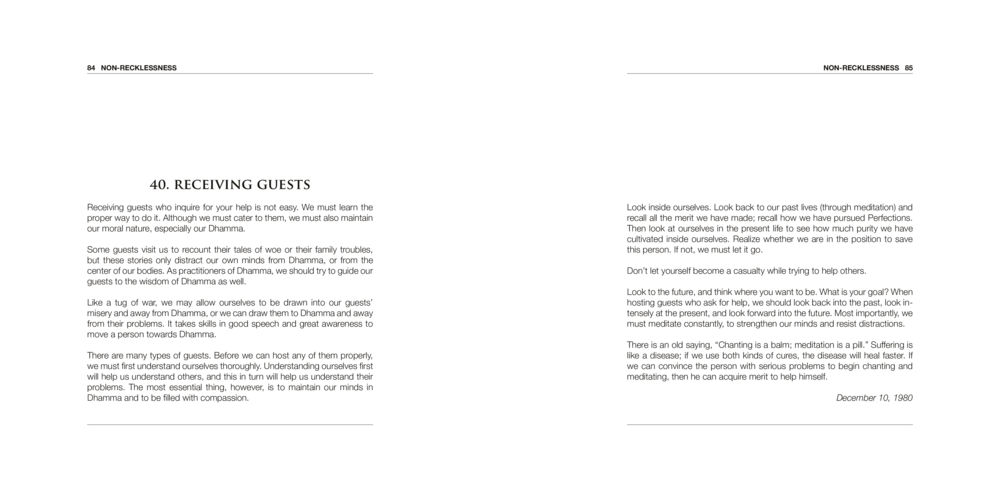Receiving Guests with Compassion and Dhamma : หน้า 43/135
Khun Yai’s Teachings : หน้า 43/135 Learn how to receive guests seeking help while maintaining your moral nature and Dhamma. This guide emphasizes the importance of self-understanding and compassion.
0 ครั้ง

สรุปเนื้อหา
Receiving guests seeking guidance can be challenging. It is essential to cater to them while upholding our moral nature and Dhamma. Guests often share their struggles, which can distract us from our practice. As Dhamma practitioners, we should aim to guide them towards wisdom. Balancing the act of helping others without losing our path requires awareness and skillful communication. Understanding ourselves is the first step to aiding others effectively. By reflecting on our past merits, current state, and future goals, we can assess our capability to assist others. Meditation strengthens our resolve and focus. Remembering that chanting and meditation serve as remedies for suffering can aid both us and our guests. Constant practice and self-awareness will enhance our ability to receive guests appropriately. For more resources on Dhamma, please visit dmc.tv.
หัวข้อประเด็น
- Receiving Guests
- Dhamma Principles
- Self-Understanding
- Compassionate Communication
- Meditation and Chanting







































































































































